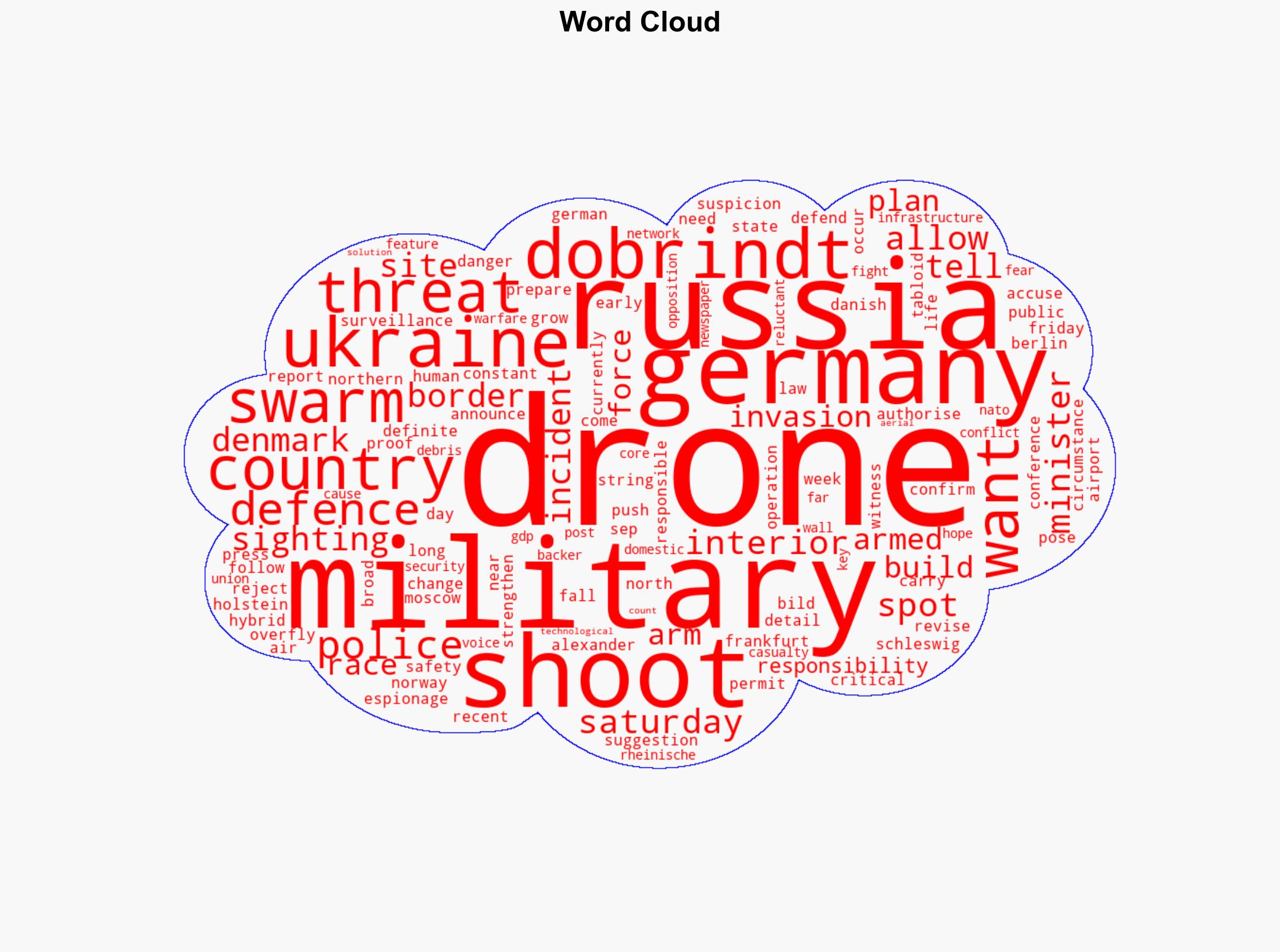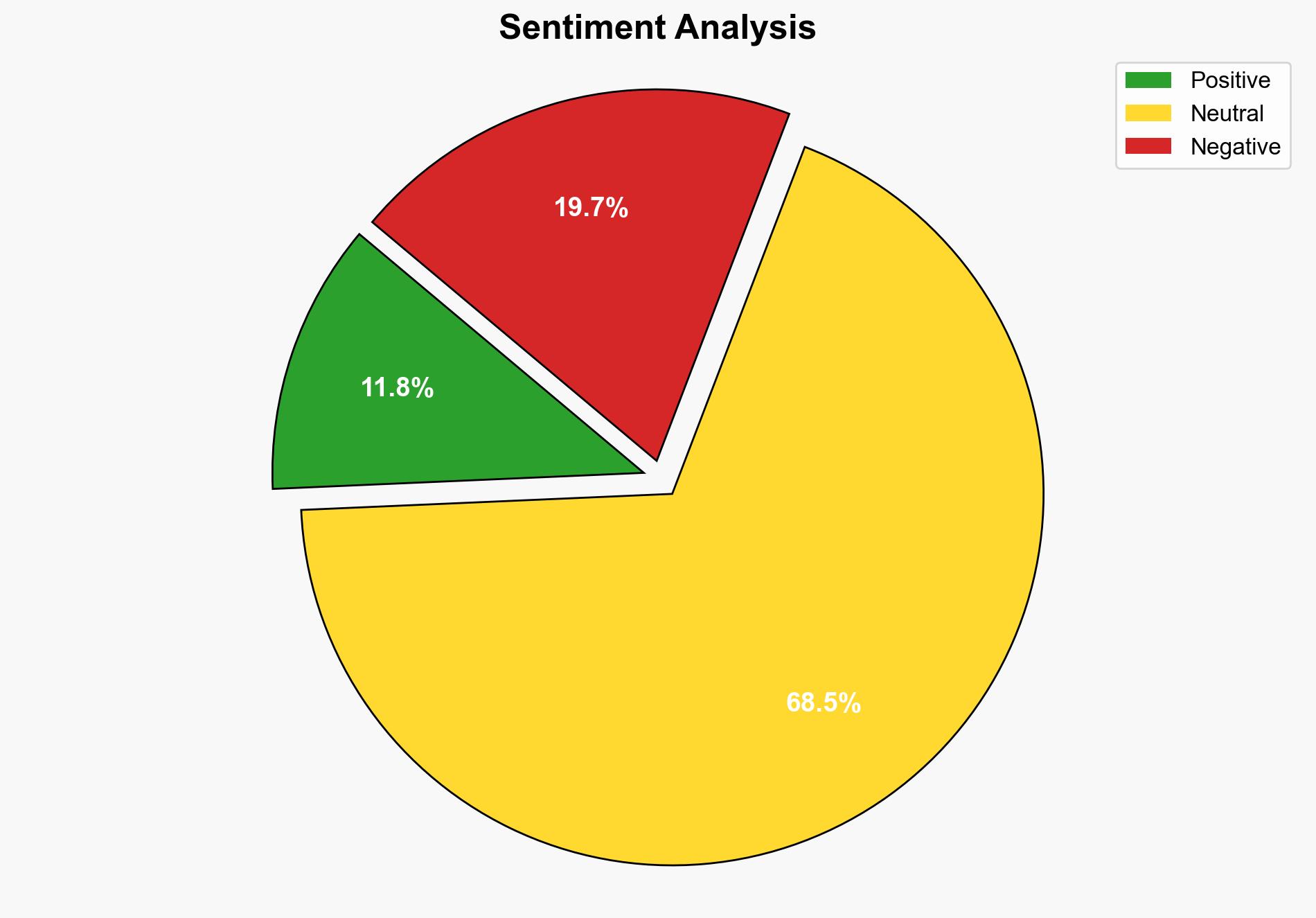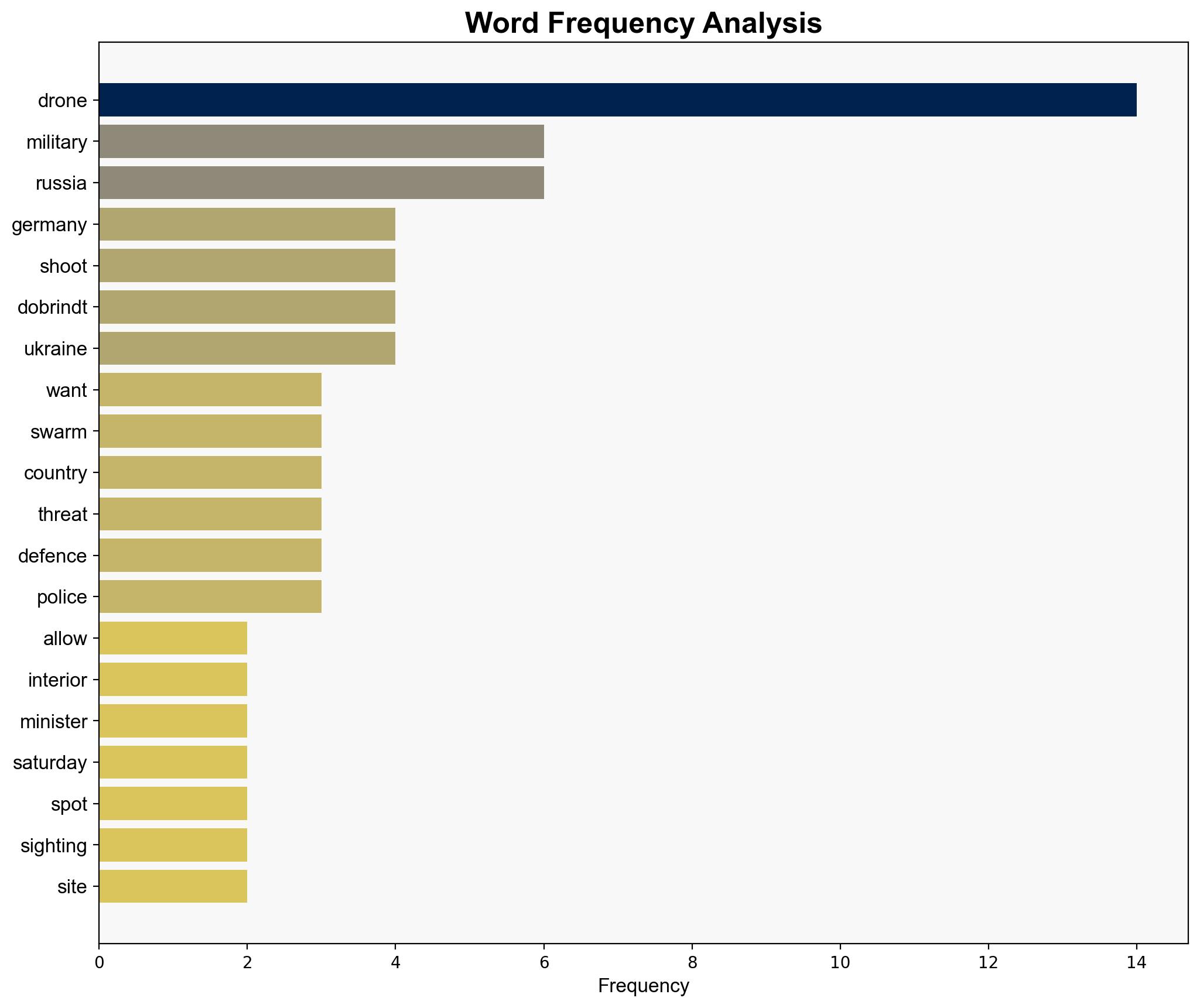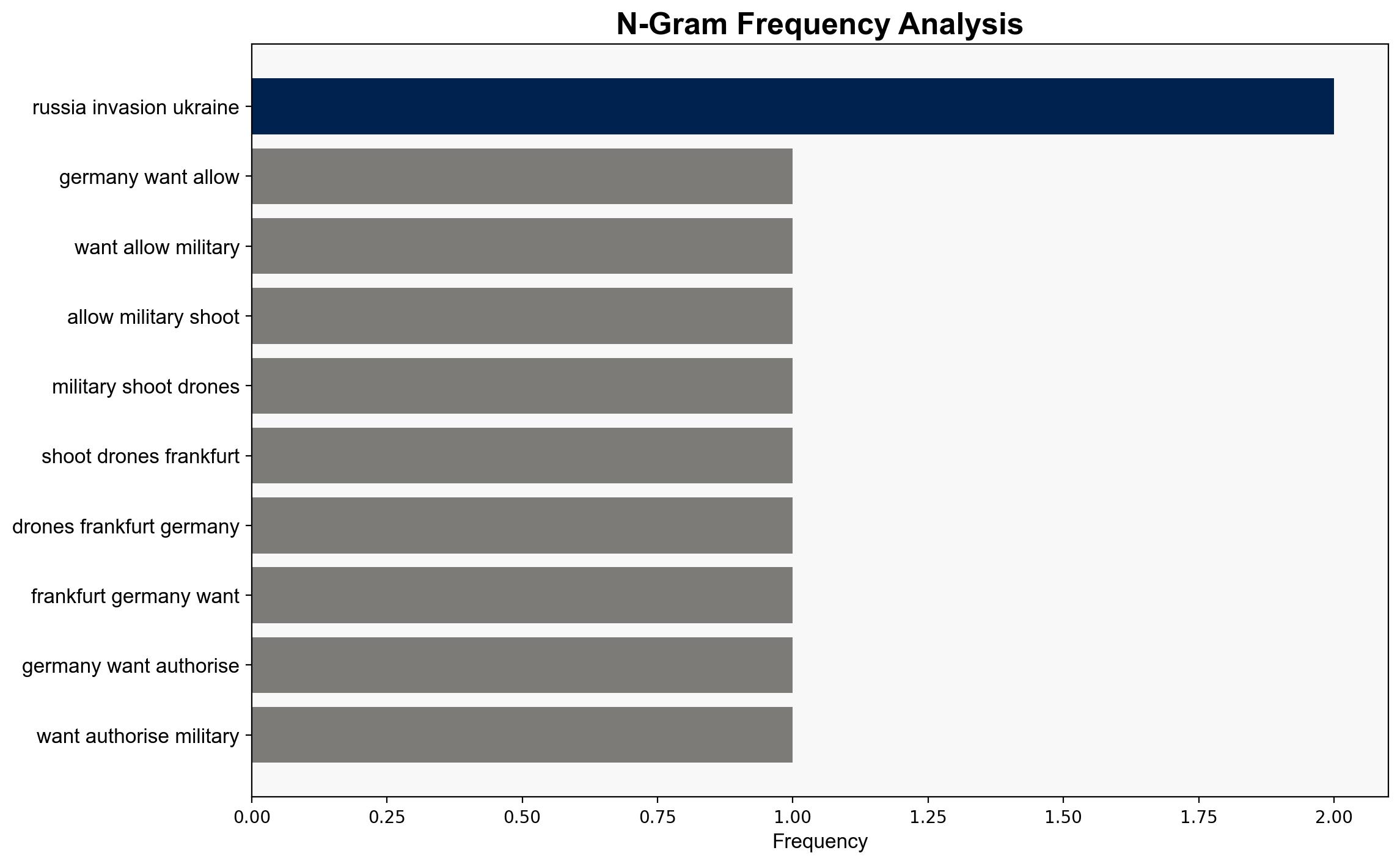Germany plans to authorise military to shoot down drones amid rising threats – CNA
Published on: 2025-09-27
Intelligence Report: Germany plans to authorise military to shoot down drones amid rising threats – CNA
1. BLUF (Bottom Line Up Front)
Germany’s proposal to authorize military intervention against drones reflects heightened security concerns, potentially linked to Russian activities. The most supported hypothesis is that this move is a strategic response to perceived hybrid threats, particularly espionage and surveillance. Confidence level: Moderate. Recommended action: Germany should enhance its drone defense capabilities while engaging in diplomatic channels to mitigate escalation risks.
2. Competing Hypotheses
1. **Hypothesis A**: Germany’s decision is primarily a defensive measure against increasing espionage and surveillance threats, particularly from Russia, as part of a broader strategy to strengthen national security in response to the Ukraine conflict.
2. **Hypothesis B**: The move is a proactive step in response to a general increase in drone-related incidents across Europe, not necessarily linked to any single actor, but as part of a broader trend in modern warfare and security threats.
Using Analysis of Competing Hypotheses (ACH), Hypothesis A is better supported due to the specific mention of Russian activities and the context of the Ukraine conflict. Hypothesis B lacks direct evidence linking the decision to a broader trend beyond the regional context.
3. Key Assumptions and Red Flags
– **Assumptions**: It is assumed that the drone sightings are linked to espionage activities and that military intervention is the most effective response.
– **Red Flags**: The lack of public evidence directly linking Russia to the drone incidents raises questions about the attribution of these threats.
– **Blind Spots**: Potential over-reliance on military solutions without considering alternative diplomatic or technological measures.
4. Implications and Strategic Risks
The authorization for military action against drones could escalate tensions with Russia, potentially leading to retaliatory actions. This move may also set a precedent for other nations, influencing regional security dynamics. Economically, increased defense spending could impact other areas of public policy. Cybersecurity risks may rise if drone incidents are part of a broader hybrid warfare strategy.
5. Recommendations and Outlook
- Germany should invest in advanced drone detection and neutralization technologies to minimize reliance on military force.
- Engage in diplomatic discussions with Russia to address mutual security concerns and reduce the risk of escalation.
- Scenario-based projections:
- Best: Successful deterrence of drone threats with minimal military engagement.
- Worst: Escalation into broader conflict with Russia, impacting regional stability.
- Most Likely: Continued drone incidents with gradual improvement in defense capabilities.
6. Key Individuals and Entities
– Alexander Dobrindt
– Moscow (as a geopolitical entity)
7. Thematic Tags
national security threats, cybersecurity, counter-terrorism, regional focus





